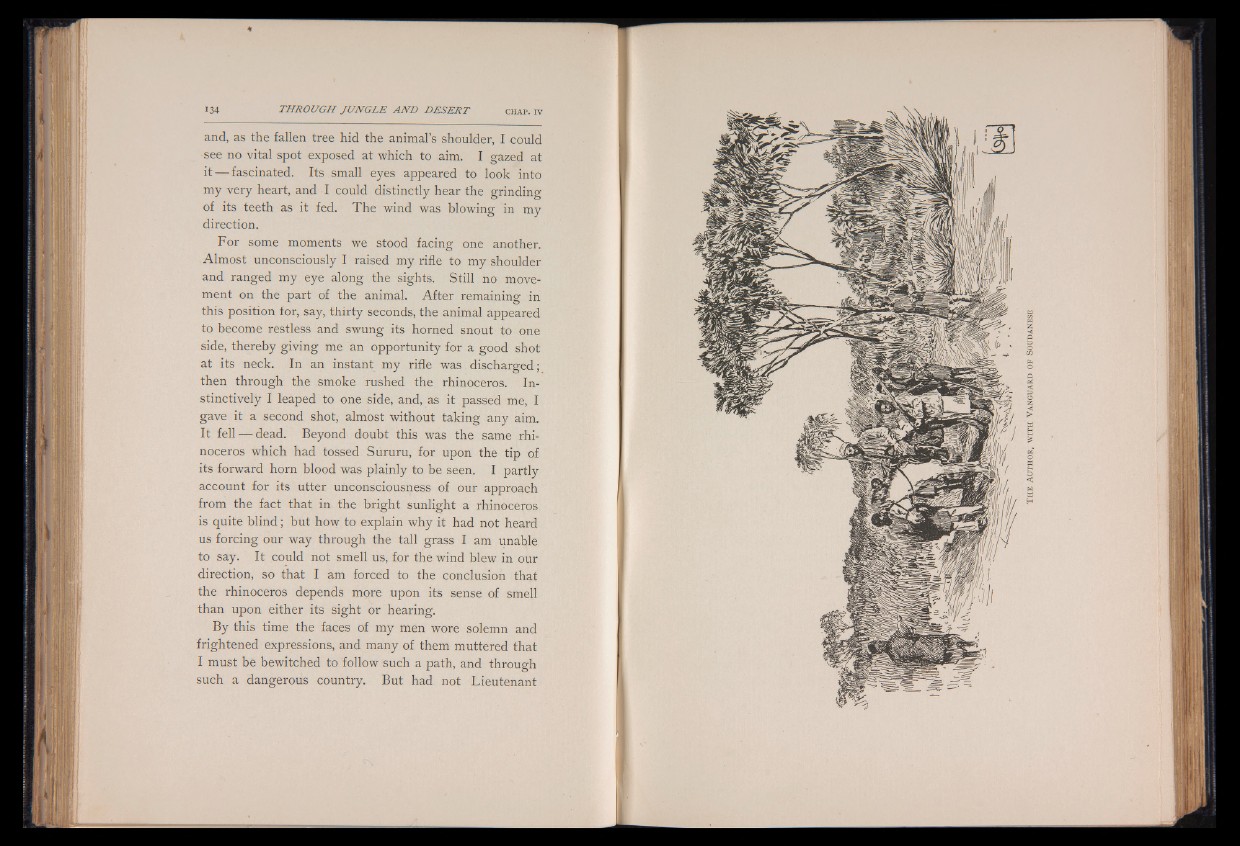
and, as the fallen tree hid the animal’s shoulder, I could
see no vital spot exposed at which to aim. I gazed at
it — fascinated. Its small eyes appeared to look into
my very heart, and I could distinctly hear the grinding
of its teeth as it fed. The wind was blowing in my
direction.
For some moments we stood facing one another.
Almost unconsciously I raised my rifle to my shoulder
and ranged my eye along the sights. Still no movement
on the part of the animal. After remaining in
this position for, say, thirty seconds, the animal appeared
to become restless and swung its horned snout to one
side, thereby giving me an opportunity for a good shot
at its neck. In an instant my rifle was discharged;
then through the smoke rushed the rhinoceros. Instinctively
I leaped to one side, and, as it passed me, I
gave it a second shot, almost without taking any aim.
It fell — dead. Beyond doubt this was the same rhinoceros
which had tossed Sururu, for upon the tip of
its forward horn blood was plainly to be seen. I partly
account for its utter unconsciousness of our approach
from the fact that in the bright sunlight a rhinoceros
is quite blind; but how to explain why it had not heard
us forcing our way through the tall grass I am unable
to say. It could not smell us, for the wind blew in our
direction, so that I am forced to the conclusion that
the rhinoceros depends more upon its sense of smell
than upon either its sight or hearing.
By this time the faces of my men wore solemn and
frightened expressions, and many of them muttered that
I must be bewitched to follow such a path, and through
such a dangerous country. But had not Lieutenant